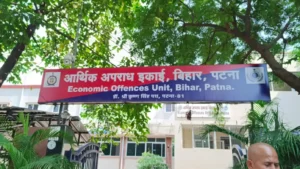
Patna: India’s air strikes on nine terror camps in Pakistan and Pakistan-occupied Kashmir under ‘Operation Sindoor’ were more than a military retaliation—they carried deep symbolic weight. The name itself, officials say, is a tribute to the lives lost and a direct reference to the grief of those left behind after the Pahalgam massacre.
On April 22, armed terrorists opened fire on a group of Indian tourists in Baisaran Valley, Pahalgam, killing 26 people—25 Indians and one Nepali citizen. Survivors’ accounts describe a chilling pattern: assailants reportedly asked victims to identify their religion before opening fire. The attacks devastated families from across India, many of whom had travelled to Kashmir to celebrate personal milestones.
Among the victims were newlyweds Shubham and Aishnya from Kanpur, whose honeymoon turned tragic. “They asked if we were Hindu or Muslim,” Aishnya recalled, “and then they shot Shubham.” Similarly, Lieutenant Vinay Narwal was killed just a week after his wedding while dining with his wife, Himanshi.
Other accounts include Shaileshbhai Kalthia of Surat, who was gunned down in front of his wife and children, and Sushil Nathaniel of Indore, who took a bullet while shielding his family. In another case, Manjunath Rao, who had come to Kashmir with his son to celebrate the latter’s academic success, was also killed. His wife recounted that the terrorists demanded their deaths send a message “to Modi.”
The horror of the massacre, which stripped the ‘sindoor’—the symbolic mark of married Hindu women—from many wives, is what led the military to choose the name “Operation Sindoor” for the retaliatory action launched on Mao 7.
The operation, involving 24 precision missile strikes on key terrorist launch pads in Muridke and Bahawalpur—strongholds of Lashkar-e-Taiba and Jaish-e-Mohammed—reportedly killed over 70 terrorists. The Indian Defence Ministry stated the targets were carefully selected to avoid escalation, with no Pakistani military infrastructure hit.
“This was a focused, non-escalatory strike,” the Ministry said in a statement. “India has acted with restraint, but also with resolve. Those responsible for the Pahalgam attack have been held accountable.”
The strikes came hours before a nationwide civil defence drill, with security heightened across airports, stations, and state borders.
Prime Minister Narendra Modi vowed to pursue “the perpetrators of the attack and their conspirators to the ends of the earth… and deliver punishment beyond their imagination.”






